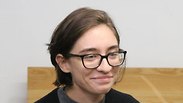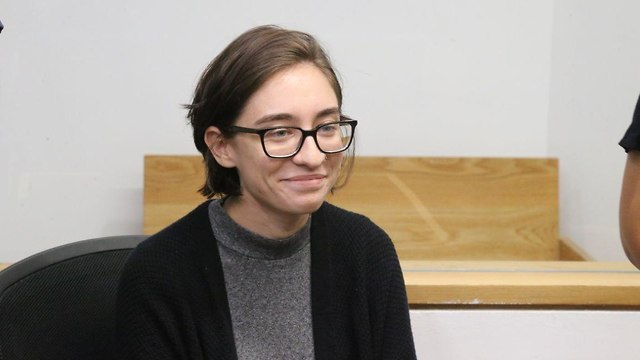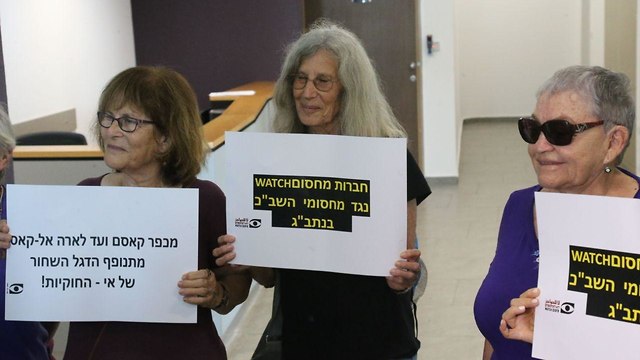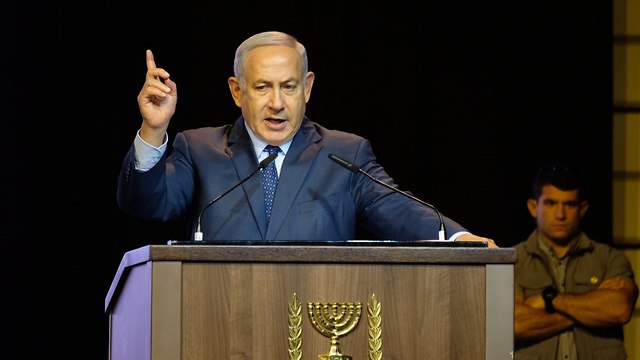
Supreme Court stays deportation of US student
Lara Alqasem is contesting government decision to bar her entry into Israel to study at Hebrew University over her past activities in Students for Justice in Palestine; she filed a motion with Supreme Court to block her deportation after Tel Aviv District Court rejected her appeal.
Israel's Supreme Court on Sunday issued a stay of execution against the deportation of a US student barred from Israel under a law against pro-Palestinian boycotters filed, until the court can hear her appeal.
Lara Alqasem, 22, flew to Israel on October 2 on a study visa but was refused entry by security officials who cited her role as president of a small local chapter of Students for Justice in Palestine at the University of Florida.
In airport detention since then, she has been contesting the exclusion, with the backing of Jerusalem's Hebrew University, where she was due to begin a year-long master's program on Sunday.
On Friday, Tel Aviv District Court rejected Alqasem's appeal to be allowed in. On Sunday, her lawyers said she filed a dual motion to the Supreme Court to block her looming deportation and consider a last-ditch appeal for entry.
"A stay has been issued against the deportation, and the appeal motion will be heard this week," a court spokesman said.
Her case has touched off debate in Israel over whether democratic values have been compromised by a 2017 law that bars the entry of foreigners who publicly support anti-Israel boycotts, and if a hard line against the student would ultimately harm the country's image.
The Hebrew University, which is supporting Alqasem’s stance, issued a statement against her detention. Rector Barak Medina wrote in a student magazine that although the state has a right to decide who enters its borders, the question is whether such detentions are a smart move.
“All I know is that she came to study here and I do not fear a 20-year-old girl,” Medina said. He added that he became a victim of incitement by politicians for his stance.
Hebrew University students had a mixed response when asked about the ordeal. Some agreed with the government’s decision, arguing that measures must be taken against people who wish to harm Israel economically, and they expressed disappointment with the university’s official stance.
Other students believe that expelling Alqasem can only further damage Israel’s standing among the international community; they also fear it may affect Israeli students who wish to study abroad.
Prime Minister Benjamin Netanyahu asserted Israel's stance was similar to other countries' practices.
"If ... you're virulently against America and you try to come into the United States, there's a good chance you won't be let in," he told visiting Christian journalists. "That's also true of many of the European democracies. It's true of the democracy called Israel."
His government says Students for Justice activities included a campaign to boycott Sabra hummus, made and sold in the United States by a company partly owned by a firm in Israel.
Israel sees such groups, and the wider Boycott, Divestment and Sanctions (BDS) movement, not only as an attempt to isolate it over its security stance regarding territories which Palestinians seek for a state, but also as a campaign for its destruction.
Alqasem, who is of Palestinian descent, stopped her activities in the Students for Justice group months before the anti-boycott law came into effect, has pledged not to take part in boycott activities while in Israel and did not plan to visit the West Bank, her attorneys have said.
Israel's Supreme Court rarely agrees to hear appeals over administrative matters ruled on by lower courts, Alqasem's lawyer Leora Bechor said. "It needs very unique circumstances," she told Reuters.
Bechor said Alqasem could have opted to fly back to the United States, but had chosen to remain in airport detention, where she had only intermittent access to phone communication and had been denied reading and writing materials.













